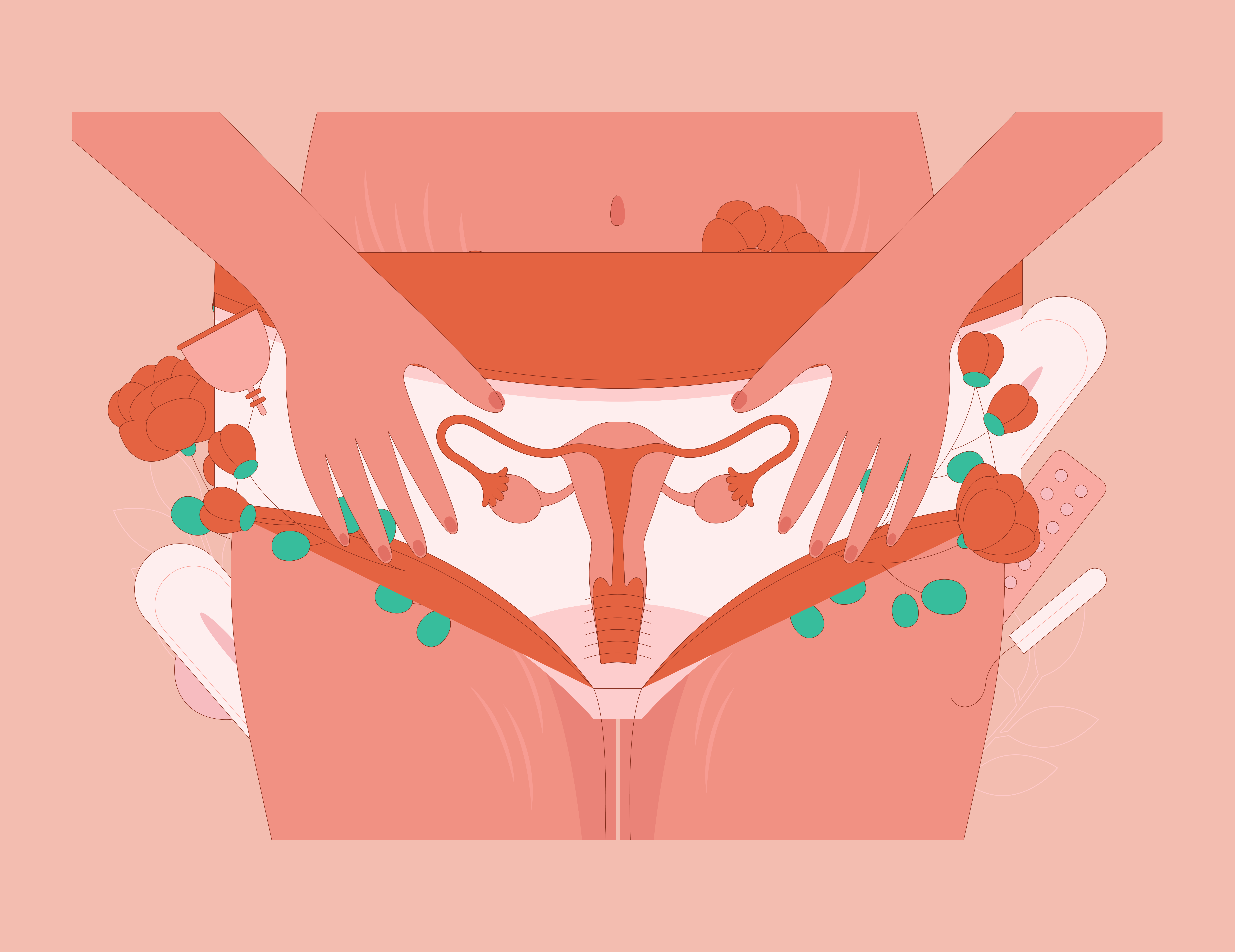Importance of Vaginal Care in 2024
In the realm of women’s vaginal care, the significance of vaginal health often remains overshadowed Vaginal Careby other topics. However, just like any other aspect of self-care, proper attention to vaginal health is vital for overall well-being. Just as we prioritize skincare, exercise, and nutrition, understanding and caring for the vaginal area is an essential component of a healthy lifestyle. This comprehensive guide aims to shed light on the importance of vaginal care, offering insights into its multifaceted aspects and providing actionable steps for optimal vaginal health.
Understanding the Vaginal Care Ecosystem
The vagina is not merely a reproductive organ but rather an intricate ecosystem that plays a crucial role in maintaining the body’s balance. Within this ecosystem, various microorganisms work harmoniously to preserve a healthy environment. Lactobacilli, commonly referred to as “good bacteria,” are a dominant presence, regulating the pH level and warding off harmful bacteria. An equilibrium in this ecosystem is vital, as an imbalance can lead to infections, irritation, and discomfort.
Promoting Holistic Wellness For Vaginal Care
Preventing Infections:
A well-maintained vaginal environment serves as a natural defense mechanism against infections. Conditions such as yeast infections, bacterial vaginosis, and urinary tract infections can often be prevented or managed through proper vaginal care.
Boosting Confidence:
The comfort of feeling clean and fresh significantly impacts self-confidence. Adequate vaginal care can help reduce odor and discomfort, enabling women to navigate their daily lives with confidence.
Enhancing Intimate Health: Vaginal dryness and discomfort can adversely affect sexual well-being. Prioritizing vaginal care can lead to improved lubrication, reduced pain during intercourse, and a more fulfilling intimate life.
Practical Vaginal Care Guidelines
Hygiene Habits:
Maintaining proper hygiene is paramount. Use mild, fragrance-free soaps when cleansing the external genital area. Avoid douching, as it disrupts the natural pH balance and can lead to infections.
Clothing Choices:
Opt for breathable fabrics like cotton underwear to ensure proper air circulation, reducing the likelihood of moisture buildup that can encourage bacterial growth.
Safe Sexual Practices:
Engaging in safe sexual practices, including the use of condoms, can prevent the transmission of infections. Open communication with your partner about sexual health is equally important.
Menstrual Care:
Choose sanitary products that suit your comfort and needs during menstruation. Regularly changing these products can prevent infections.
Preventing Common Vaginal Care Issues
Yeast Infections:
Triggered by factors such as antibiotics, hormonal changes, or a weakened immune system, yeast infections are a common concern. Wearing breathable clothing, limiting sugar intake, and maintaining a balanced vaginal pH can aid in preventing yeast infections.
Bacterial Vaginosis:
An imbalance in the vaginal pH can lead to bacterial vaginosis. Avoid using scented products and maintain a healthy lifestyle to reduce the risk.
Urinary Tract Infections (UTIs):
Hydration, urination after intercourse, and proper hygiene practices can significantly lower the likelihood of UTIs.
Recognizing the Need for Medical Attention
While maintaining proper vaginal care is effective in preventing many issues, it’s crucial to know when professional medical assistance is necessary. Unusual discharge, persistent itching, burning sensations, or pain should prompt a visit to a healthcare provider.
Dispelling Myths and Overcoming Stigmas
Vaginal care often falls prey to myths and stigmas, hindering open discussions and proactive care. Challenging these misconceptions is essential in creating an environment where women can comfortably seek guidance, discuss their concerns, and access accurate information about vaginal care.
The Impact of Hormonal Changes
The importance of vaginal care becomes even more pronounced during various life stages, such as puberty, pregnancy, and menopause. Hormonal changes can influence the vaginal environment, leading to altered pH levels, increased vulnerability to infections, and changes in lubrication. It’s essential to adapt your vaginal care routine to these stages, consulting a healthcare professional if needed.
Holistic Approaches to Vaginal Care
Nutrition:
A balanced diet rich in antioxidants, vitamins, and minerals supports overall health, including vaginal well-being. Adequate hydration also plays a role in maintaining healthy mucous membranes.
Physical Activity For Vaginal Care:
Regular exercise enhances blood circulation, which can contribute to a healthy vaginal environment. However, it’s important to maintain proper hygiene post-workout to prevent moisture-related issues.
Stress Management: Chronic stress can impact hormonal balance, potentially affecting vaginal health. Engaging in relaxation techniques, such as meditation and yoga, can contribute to overall well-being.
Empowering Conversations and Education
Creating an open dialogue about vaginal care is essential to women’s well-being. Educating young girls about vaginal health from an early age can set the foundation for a lifetime of informed decisions. Encouraging open conversations among women of all ages, whether through healthcare providers, educational workshops, or online communities, fosters a supportive environment where women can share experiences, concerns, and knowledge.
Conclusion
Prioritizing vaginal care is pivotal for women’s health and overall well-being. By understanding the complexities of the vaginal ecosystem and adopting healthy hygiene practices, women can enjoy enhanced physical comfort, emotional wellness, and the confidence that comes with taking proactive steps toward a healthier life. Every effort, no matter how small, contributes to a happier, healthier you. Embrace the empowerment that arises from nurturing your vaginal wellness, and savor the benefits that radiate through every aspect of your life.
FAQs
1. How often should I clean my vaginal area?
It’s recommended to clean the external genital area daily with mild soap and water. Avoid over-cleansing, as it can disrupt the natural balance.
2. Can I use scented products to maintain freshness?
No, scented products can cause irritation and disrupt the vaginal pH balance. Stick to unscented, gentle products.
3. Are vaginal steam treatments effective?
The efficacy of vaginal steam treatments is not firmly established. It is advisable to seek guidance from a healthcare professional before considering any new treatments.
4. How can I prevent vaginal infections during my period?
Change sanitary products frequently, maintain proper hygiene, and avoid using products with harsh chemicals.
5. Can diet impact vaginal health?
Yes, a balanced diet rich in nutrients and probiotics can positively affect vaginal health by promoting a balanced pH and healthy bacteria.
6. Can I use scented products for vaginal hygiene?
No, scented products can disrupt the vaginal pH balance and cause irritation. Stick to unscented, gentle products.
7. How frequently should I replace my sanitary products during my menstrual period?
Change them every 4 to 6 hours or as needed. Frequent changes help prevent bacterial overgrowth.
8. Is vaginal douching necessary for cleanliness?
No, vaginal douching can disturb the natural bacterial balance and pH levels. Gentle cleansing with water and mild soap is sufficient.
9. Can stress affect vaginal health?
Yes, stress can impact hormonal balance, which in turn can affect vaginal health. Engaging in stress management techniques can offer advantages.
10. Is vaginal discharge normal?
Yes, vaginal discharge is normal and varies throughout the menstrual cycle. It helps cleanse the vaginal area and maintain its pH balance.
To read my other article on Mosturizer For Sensitive Skin, Click on the embedded Link



6 thoughts on “Exploring the Top Vaginal Care Practices Trending in 2025”